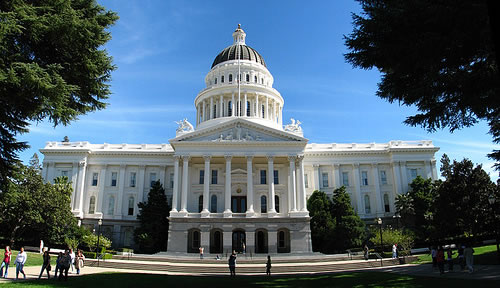Assembly Democrats Shelve Governor Brown’s Pension Reform Plan

PRESS RELEASE
SACRAMENTO – Assembly Republicans today criticized Democrats on the Assembly Public Employees, Retirement and Social Security Committee for effectively shelving Governor Brown’s pension reform plan, which was introduced in the Legislature by Republicans. In a letter to Republican lawmakers, Democrats outlined their plan to refer pension-related bills to interim study.
“I’ve learned in life that procrastination does not make problems go away. It is appalling that Democrats would prefer to stick their heads in the sand rather than enact bipartisan reforms. The Governor’s pension plan is a step in the right direction to secure fair pensions for workers, safeguard core budget priorities and protect taxpayers,” said Assembly Republican Leader Connie Conway, of Tulare, a joint-author of the Governor’s pension reform plan. “By sending the Governor’s plan to interim study, it’s clear the majority party wants to kill his plan behind closed doors. Democrats have shown little willingness to enact real reform and today’s inaction only passes the buck.”
Assembly Bill 2224 and Assembly Constitutional Amendment 22 (both by Smyth and Conway) would enact the 12-point pension reform plan outlined by Governor Brown last fall. The language in the bill is the identical legislative language as crafted by the Brown Administration. Senate Republicans have introduced mirror legislation (SCA 18 and SB 1176) in the Senate, which also has not yet been taken up for a vote.
Among the specific reforms in the Governor’s pension reform plan are common sense changes that have been proposed in the past by Democrats and Republicans alike, including:
- Changing to a "hybrid" plan (401(k) plan, defined benefit, and Social Security) for newly-hired public employees
- Raising the retirement age for newly-hired state employees to 67
- Putting an end to pension spiking by changing the method by which retirement benefits are calculated for new employees from the highest single year salary to the highest three years
- Prohibiting "pension holidays," where employee or employer contributions to pay for pension benefits are suspended
- Ending the practice of allowing state workers to purchase air time, or additional service credit for time they did not actually work
- Requiring new state employees to work longer to qualify for retiree health benefits.
Recent reports by respected, nonpartisan institutions have illustrated the scope of California’s unfunded pension obligation crisis. The bipartisan Little Hoover Commission found in a 2010 report that the unfunded pension obligation in California’s top 10 public pension systems, covering both local and state government workers, was $240 billion. More recently, a study by the nonpartisan Stanford Institute for Economic Policy Research found that the unfunded pension obligation of CalPERS, the California State Teachers’ Retirement System (CalSTRS) and the University of California retirement plan was $485 billion.
In a recent poll by the nonpartisan Public Policy Institute of California, 83 percent of Californians said the amount of government spending on pensions is a problem.




